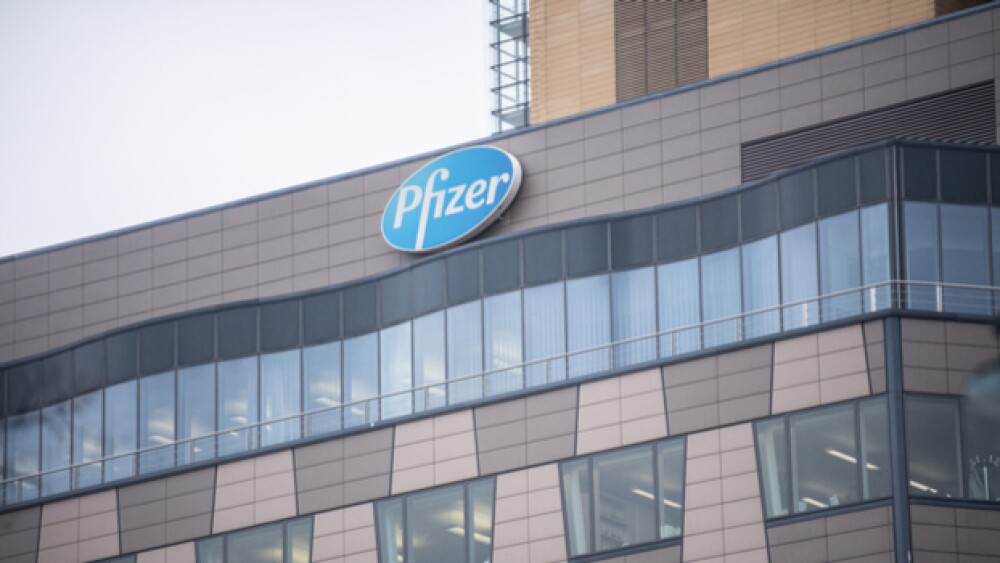The trial, which paired a checkpoint inhibitor and PARP inhibitor, was not likely to hit endpoints. It was the second ovarian cancer trial failure for the two companies in six months.
Cineberg / Shutterstock.com
Merck KGaA, Darmstadt, Germany and Pfizer discontinued a Phase III ovarian cancer drug trial due to several emering factors including determining that the degree of benefit observed in the previously announced interim analysis of the JAVELIN 100 Ovarian study does not support the continuation of the trial.
It was the second ovarian cancer trial the two companies collaborated on that failed within the past six months.
In the Phase III JAVELIN Ovarian PARP 100 study, the two companies were evaluating the efficacy and safety of Bavencio (avelumab), an anti-PD-L1 antibody, in combination with chemotherapy followed by maintenance therapy of avelumab in combination with talazoparib, Pfizer’s PARP inhibitor it gained from the acquisition of Medivation, versus an active comparator in treatment-naïve patients with locally advanced or metastatic ovarian cancer.The companies said the results emphasize the need to better understand the role of immunotherapy in ovarian cancer. In addition to the benefit issues, Merck KGaA and Pfizer said other factors contributing to the discontinuation of the study include “the rapidly changing treatment landscape and the approval of a PARP inhibitor in the frontline maintenance setting.” The companies stressed that the decision to discontinue the trial was not made for safety reasons.
The primary endpoint of the JAVELIN Ovarian PARP 100 study was progression-free survival as determined based on blinded independent central review assessment.
The researchers were hoping to show that the immune-oncology drug paired with chemo and then followed by maintenance treatment of Bavencio and the PARP inhibitor would benefit frontline patients.
The alliance between Merck KGaA, Darmstadt, Germany, and Pfizer was the first to test an immunotherapy in this indication, given the significant unmet need in the treatment of ovarian cancer. Merck KGaA and Pfizer have been collaborating on the development and commercialization of Bavencio since 2014. More than 295,000 women are diagnosed with ovarian cancer each year. When it is diagnosed, it is often in advanced stages, which can make it difficult to treat. Approximately 70 percent of patients with ovarian cancer who receive the standard-of-care frontline, platinum-based chemotherapy, will relapse in the first three years, the companies said.
In the fall, the two companies also reported problems with an ovarian cancer treatment. The Phase III JAVELIN Ovarian 200 trial failed to meet endpoints. The two companies said Bavencio (avelumab) used alone or in combination with pegylated liposomal doxorubicin (PLD), a type of chemotherapy, did not meet the pre-specified endpoints compared to PLD alone in patients with platinum-resistant or -refractory ovarian cancer.
The decision to halt the JAVELIN Ovarian PARP 100 trial also comes in the wake of continued success for AstraZeneca’s PARP inhibitor, Lynparza. In December, the FDA approved Lynparza for use as maintenance treatment of adult patients with deleterious or suspected deleterious germline or somatic BRCA-mutated (gBRCAm or sBRCAm) advanced epithelial ovarian, fallopian tube or primary peritoneal cancer who are in complete or partial response to 1st-line platinum-based chemotherapy. The approval marked the first one for a PARP inhibitor in the 1st-line maintenance setting for BRCAm advanced ovarian cancer.





